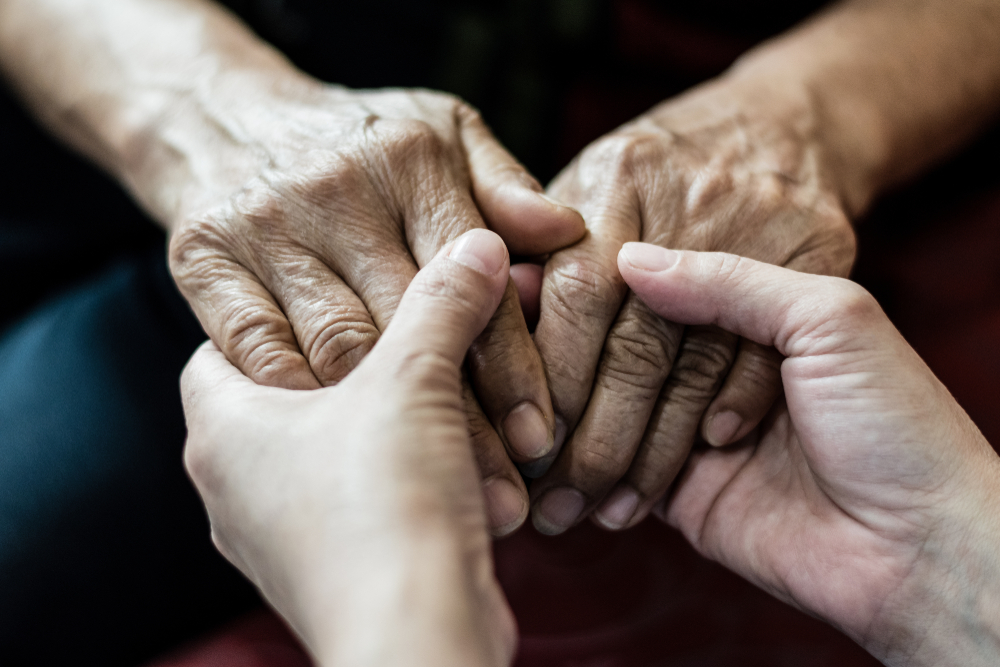Resources to Help With End-of-Life Care
No one wants to think about our death or the death of a loved one. The reality is that death is inevitable, so preparing for end-of-life decisions is essential. Over the past few years, especially with the COVID-19 pandemic, we have all been reminded about life’s fragility.
Posted on December 9, 2022

When you are faced with addressing end-of-life care, knowing where to turn for the answers your family needs can be overwhelming. For guidance in getting started, continue reading.
Hospice Care
Hospice care is medical treatment for patients close to the end of their lives. Their conditions are unlikely to improve. Hospice care focuses on patient comfort and family support.
If you choose to place a family member in hospice care, you will have a team of medical professionals surrounding you during a difficult time. Examples of the care your loved one may receive include medications to reduce pain, periodic visits to the patient by a care team, and respite for family members and caretakers.
To learn more about the availability of hospice care and how to get connected to resources in your area, visit the Hospice Foundation of America online.

FREE WEBINAR
5 Things to Know About
Estate Planning
When You Turn Sixty-Five
End-of-Life Planning
In addition to making your loved one as comfortable as possible, ensure their legal interests are protected, too. If you have a loved one with a terminal illness, it may be wise to have them complete estate planning documents if they have not already done so.
For guidance in drafting these important legal documents, consult with a qualified attorney in your area.
Last Will and Testament
This document aims to set up how your affairs will be handled after your death. A loved one diagnosed with a terminal disease or who is elderly should have a valid last will and testament to help family who is left behind to avoid the stress of dividing their deceased loved one’s assets and property.
Living Will
A living will, also known as an advance directive, is a document that directs your family about your health care before you lose the capacity to make your own decisions.
The purpose of a living will is to include your choices regarding emergency care and life-saving medical treatment. Having a living will helps your family avoid the stress and guilt associated with making end-of-life decisions regarding medical care.
Grief Support Groups
It is as essential to take care of yourself as it is to take care of your loved one as their life ends. You may feel alone during this time of grief. Build a support network around yourself to aid in navigating the grieving process. If you have family members to lean on, take advantage of that.
It is possible to find support groups filled with people who understand your situation if you don’t have family or close friends. If you are looking for a place to start, visit findhelp.org. You can search for bereavement groups, counseling services, and workshops that fit your needs in your area.
Whether you are looking for a group that understands the loss of a parent or spouse, a veterans’ group, or any other unique group of people, know that you are not alone.
More from our blog…
Elder Financial Abuse: How an Elder Law Attorney Can Help
Elder financial abuse is a significant issue affecting many older adults nationwide. It involves someone exploiting or misusing an older person’s finances or assets for [...]
Does Medicare Cover Prescription Weight Loss Drugs?
Americans have a growing appetite for prescription drugs such as Ozempic, Wegovy, and Mounjaro. Originally developed to treat Type 2 diabetes, they are now exploding [...]
How Social Security Overpayment Rules Are Changing
With a new commissioner at the helm, the Social Security Administration (SSA) has been announcing several policy changes in recent weeks. In late March 2024, the [...]
Claiming the Guardianship of an Elderly Parent
Often an aging parent will lose their ability to think clearly or make informed decisions about their life. This may occur because of dementia, mental [...]
Recent blog posts

FREE WEBINAR
5 Things to Know About
Estate Planning
When You Turn Sixty-Five





